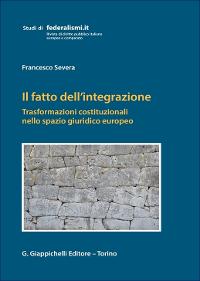
Log in or Create account
FOCUS - Human Rights N. 3 - 29/12/2017
The General Comment No. 24 (2017) on State obligations under the International Covenant on Economic, Social and Cultural Rights in the context of business activities
The increasing impact of business activities on the effectiveness of human rights does not need to be exemplified. The major challenge concerns the activities of transnational corporations which, crossing national borders, defy the traditional paradigms of states’ obligations and responsibility stemming from international human rights Treaties. The great deal of attention payed to this topic by the United Nations, which traces back to the promotion of a “New International Economic Order” in the 1970s, has knowing a new important phase since the mid-1990s, along with the increase of economic globalisation and its growing impact. In this regard, it is relevant to recall the Global Compact, launched in 1999 by the UN Secretary General Kofi Annan, and the draft of Norms on the Responsibilities of Transnational Corporations and Other Business Enterprise with regard to Human Rights, approved in 2003 by the United Nations Sub- Commission on the Promotion and Protection of Human Rights. A fundamental milestone is represented by the work carried out by Professor John Ruggie, who in 2005 was appointed as UN Special Representative of the Secretary General on the issue of human rights and transnational corporations and other business enterprises. In 2008, the Special Rapporteur proposed its final Report focused on Protect, Respect and Remedy: a Framework for Business and Human Rights. The Framework identified three pillars: the state duty to protect human rights from abuses perpetrated by transnational corporations and other business enterprises, the corporate responsibility to respect all human rights, and the necessity to assure access to effective remedies, including through appropriate judicial or non-judicial mechanisms. Following the renew of the mandate in the view to assure an implementation of the three principles defined framework, Professor Ruggie further developed the Framework, and in 2011 elaborated the Guiding Principles on Business and Human Rights, which were unanimously endorsed by the Human Rights Council. The adoption of the UN Guiding Principles encouraged the promotion of some meaningful initiatives aiming to develop the reflection on business and human rights at the international level. It is worth recalling in particular the 2014 Resolution of the Human Rights Council establishing the open-ended intergovernmental working group tasked with the mandate to elaborate an international legally binding instrument aiming to regulate the activities of transnational corporations and other business enterprises in international human rights law. As stated by the Resolution, in the light of discussions taking place on the content, scope, nature and form of the future international instrument during the first (6-10 July 2015) and second sessions (24-28 October 2017) of the working group, the Chairperson-Rapporteur would have elaborated the Elements for the draft legally binding instrument. This text has been employed as the basis for negotiations during the third session of the working group, which held from 23 to 27 October 2017... (segue)
NUMERO 1 - ALTRI ARTICOLI
-
ITALIA - DOTTRINA
Prime osservazioni sulla riforma organica del Regolamento del Senato
ITALIA - DOTTRINALa ricostruzione concettuale della nozione di 'danno ingiusto' nell'ambito dell'azione amministrativa e la sua ripercussione sul rapporto organico del funzionario
ITALIA - DOTTRINAI servizi culturali come servizi pubblici
-
ITALIA - DOTTRINA
L'Adunanza Plenaria n. 9/2017 si pronuncia sul ruolo del fattore tempo nell'esercizio del potere repressivo della p.a. in materia urbanistico-edilizia
-
ITALIA - DOTTRINA
Eccesso di potere giurisdizionale e sindacato della Cassazione sulle sentenze del Consiglio di Stato
ITALIA - DOTTRINAProgrammazione e progettazione nel codice dei contratti pubblici
ITALIA - DOTTRINALa trasparenza negli appalti pubblici



 Registrati
Registrati Login
Login
 Territorio e istituzioni
Territorio e istituzioni Lavoro Persona Tecnologia
Lavoro Persona Tecnologia America Latina
America Latina Africa
Africa Osservatorio di Diritto sanitario
Osservatorio di Diritto sanitario Osservatorio sul diritto elettorale
Osservatorio sul diritto elettorale Osservatorio Trasparenza
Osservatorio Trasparenza Human Rights
Human Rights Storico focus
Storico focus Riforme istituzionali e forma di governo
Riforme istituzionali e forma di governo Scarica il Documento integrale
Scarica il Documento integrale
 STUDI FEDERALISMI
STUDI FEDERALISMI





25/01/2023
14/10/2022
18/05/2022
22/09/2021
28/12/2020
27/07/2020
05/02/2020
04/10/2019
01/05/2019
26/12/2018
29/10/2018
25/06/2018
29/12/2017
28/07/2017
13/03/2017
07/10/2016
17/06/2016
22/01/2016
25/09/2015
03/07/2015
03/04/2015
16/01/2015
24/10/2014
20/06/2014
28/03/2014
20/12/2013
16/09/2013
17/05/2013
15/02/2013